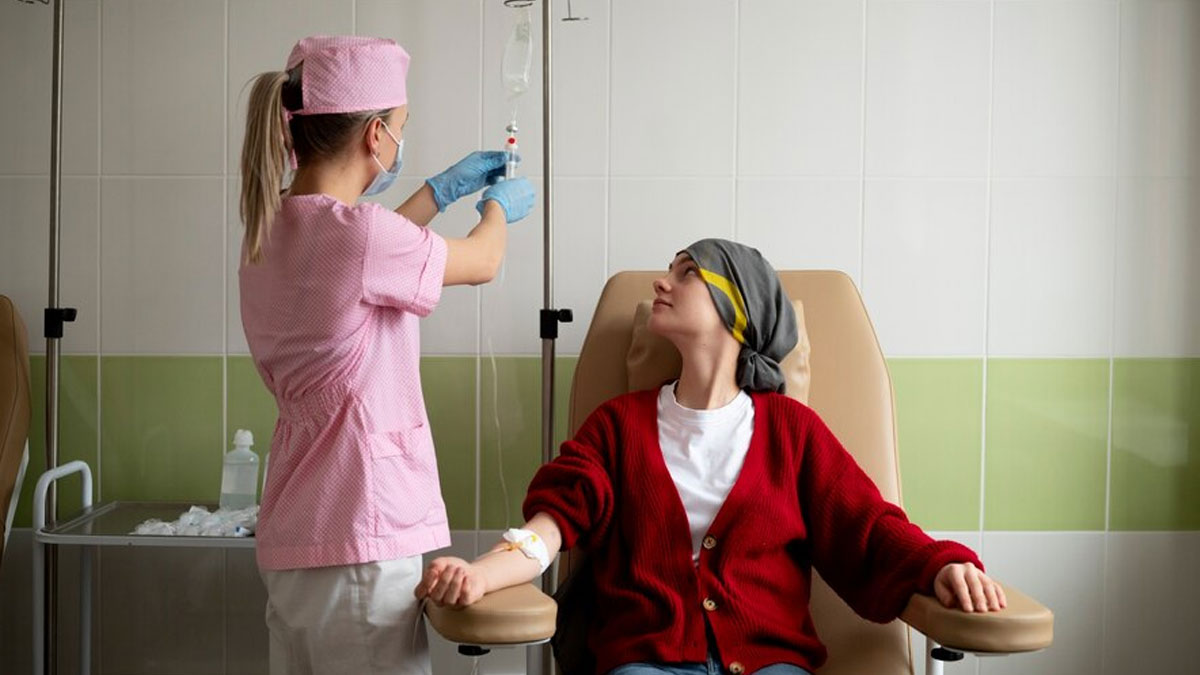
United Kingdom’s National Health Service (NHS) is set to hold a groundbreaking trial for personalised cancer vaccines. The trial will see participation from thousands of patients in England to save countless lives. Clinical trials like this are essential for helping more people live longer, healthier lives free from cancer. Here’s what you need to know about this innovative trial.
Table of Content:-
NHS Conducting Trials For World’s First Cancer Vaccine
Details of this initiative were disclosed just before the world’s largest cancer conference, the annual meeting of the American Society of Clinical Oncology (Asco) in Chicago. There, the German biotech company BioNTech, a partner in the NHS trials, will present new data on how measuring circulating tumour DNA could enhance early detection of colorectal cancer.
The NHS has already enrolled dozens of patients into its Cancer Vaccine Launch Pad, with plans to recruit thousands more across 30 NHS sites in England. Initial trials will focus on colorectal, skin, lung, bladder, pancreatic, and kidney cancers, with the possibility of expanding to other cancer types in the future.

Aim Of The Cancer Vaccine Trials
In this globally unique scheme, patients who qualify and consent to blood tests and cancer tissue sampling will gain immediate access to clinical trials for these new vaccines. Experts believe these vaccines mark a new era in cancer treatment.
What’s interesting about these revolutionary vaccines is that they promise a potential cure as they will be custom-made for each patient within a few weeks. The vaccines are tailored to target individual tumours by instructing the body to seek out and eliminate cancer cells, thereby preventing cancer from relapse.
Although research into cancer vaccines is still in its early stages, trials have already demonstrated the effectiveness of these vaccines. NHS officials anticipate that these vaccines if successfully developed and approved, could become part of standard care for various cancer types.
According to the American Cancer Society, the likelihood that a certain type of cancer can recur can not be predicted and this data is not available for every type and subtype of cancer. Additionally, the available data can not accurately predict if cancer recurrence rates will be the same in all patients of a certain type of cancer. That is why these cancer vaccines offer hope because if they are successfully developed and approved, they could become part of standard care for various cancer types.
Also Read: Advances in Breast Cancer Treatment: Expert Explains Targeted Therapies and Immunotherapy

Success Of World’s First Cancer Vaccine
The first NHS patient to join the Cancer Vaccine Launch Pad is Elliot Pfebve, a 55-year-old lecturer diagnosed with colorectal cancer after a routine health check. Following surgery and chemotherapy, he received his personalised cancer vaccine at University Hospitals Birmingham NHS Foundation Trust. His vaccine was created using the same mRNA technology as the Pfizer/BioNTech Covid vaccine.
According to reports, Dr Victoria Kunene, the trial’s principal investigator, noted that while it is too early to confirm if Pfebve has been completely cured, she remains extremely hopeful. Currently, the researchers are collecting more data and focussing on recruiting patients to the trial to establish the vaccine’s effectiveness.
This groundbreaking initiative not only marks a significant advancement in medical research but also brings new optimism for those affected by cancer, potentially leading to a future where personalised cancer vaccines become a standard part of cancer treatment.
Access to clinical trials offers additional options for patients and families, providing hope for a future where cancer recurrence is significantly reduced. As the NHS continues to pioneer in this revolutionary field, patients now have the opportunity to participate in cutting-edge treatments that could transform cancer care and outcomes.
Also watch this video
How we keep this article up to date:
We work with experts and keep a close eye on the latest in health and wellness. Whenever there is a new research or helpful information, we update our articles with accurate and useful advice.
Current Version